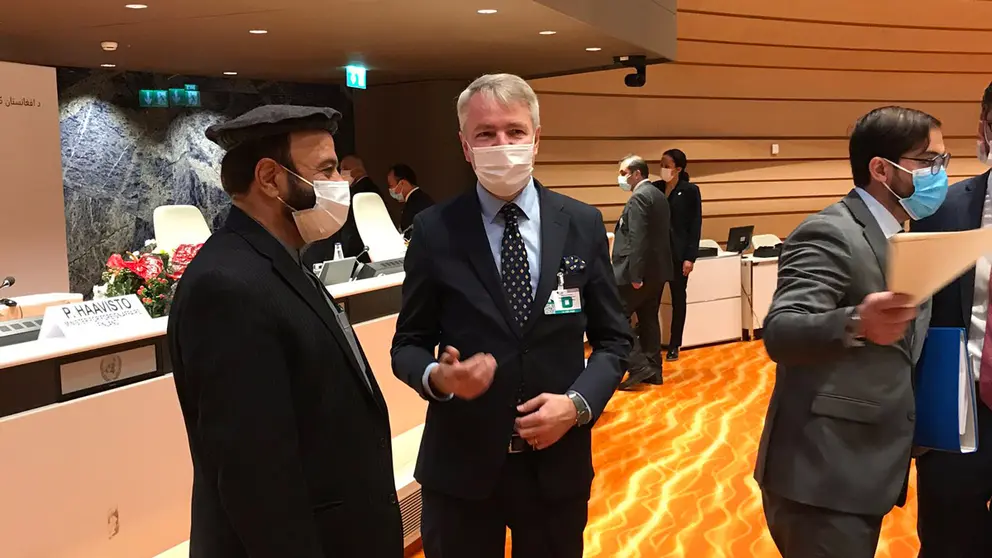Donor countries on Tuesday held out the possibility of 12 billion dollars in aid for Afghanistan over the next four years, but they made clear that the money flow depends on progress on peace, human rights and the fight against corruption.
A donor conference organized by Afghanistan, Finland and the United Nations was held in Geneva against the backdrop of deadlocked peace talks, resurging violence and the coronavirus pandemic. Around 70 countries and more than 30 international organizations participated in the event.
The promised amount fell short of the 15 billion dollars shored up at the previous such event in 2016.
Afghan Foreign Minister Mohammad Haneef Atmar welcomed the new level of support, noting that it comes as countries are grappling with the Covid-19 crisis. "That represents enormous generosity," he said at the end of the conference.
However, donor countries decided to establish a review mechanism.
Improvements demanded
"This does not come freely. It comes with conditions," said Deborah Lyons, the UN special representative for Afghanistan, about the pledges. The international community expects improvements regarding democracy, the rule of law, women's rights and the rights of minorities, she told a press conference.
She added that violence must be reduced, a ceasefire must be achieved and peace talks must progress.
“The significant pledges made at the 2020 Afghanistan Conference, despite a difficult year due to the Covid-19 pandemic, show that the international community continues to stand firmly with the Afghan people at this crucial time,” said Ville Skinnari, Finland’s Minister for Development Cooperation and Foreign Trade.
Afghan President Ashraf Ghani argued in an online speech that the aid was vital for fighting Covid-19 and alleviating widespread poverty amid the human tragedy caused by decades of conflict.
"Plans to achieve peace did not materialize as imagined. Suffering and killing continue on a daily basis. It's unbearable. The uncertainty it brings is tangible. We have to confront this uncertainty," Ghani said in a speech to participants.
Intra-Afghan peace talks initiated in mid-September have not led to any breakthroughs, with the government and the fundamentalist Taliban militants deadlocked over the agenda of the negotiations in Doha.
Atmar said that one item of the agenda related to the legal basis of the talks remains unresolved.
UN calls for a ceasefire
In his own video speech to the conference, UN Secretary General Antonio Guterres said Afghans have suffered far too long.
He asked that a ceasefire be put in place, not only to prevent the further spread of Covid-19, but to provide "a conducive environment for the Afghanistan peace negotiating team in Doha."
“The Conference echoes the demand of the Afghan people for an immediate ceasefire and a lasting peace that they deserve – these demands must not be failed,” said Pekka Haavisto, Finland’s Minister for Foreign Affairs.
As donors held their conference, there was news from Afghanistan that bomb explosions in the city of Bamyan killed at least 14 people and injured 45 others. A Taliban spokesman denied that his group was responsible. He denounced the attack.
At the donor conference, the EU committed 1.2 billion euros (1.4 billion dollars), the same amount as in the previous four years.
Britain did not make a four-year pledge but promised up to 155 million pounds (207 million dollars) of development funding for next year.
The United States pledged an initial 300 million dollars, and an additional 300 million dollars that depend on progress in the peace process, for a total of up to 600 million dollars next year.












